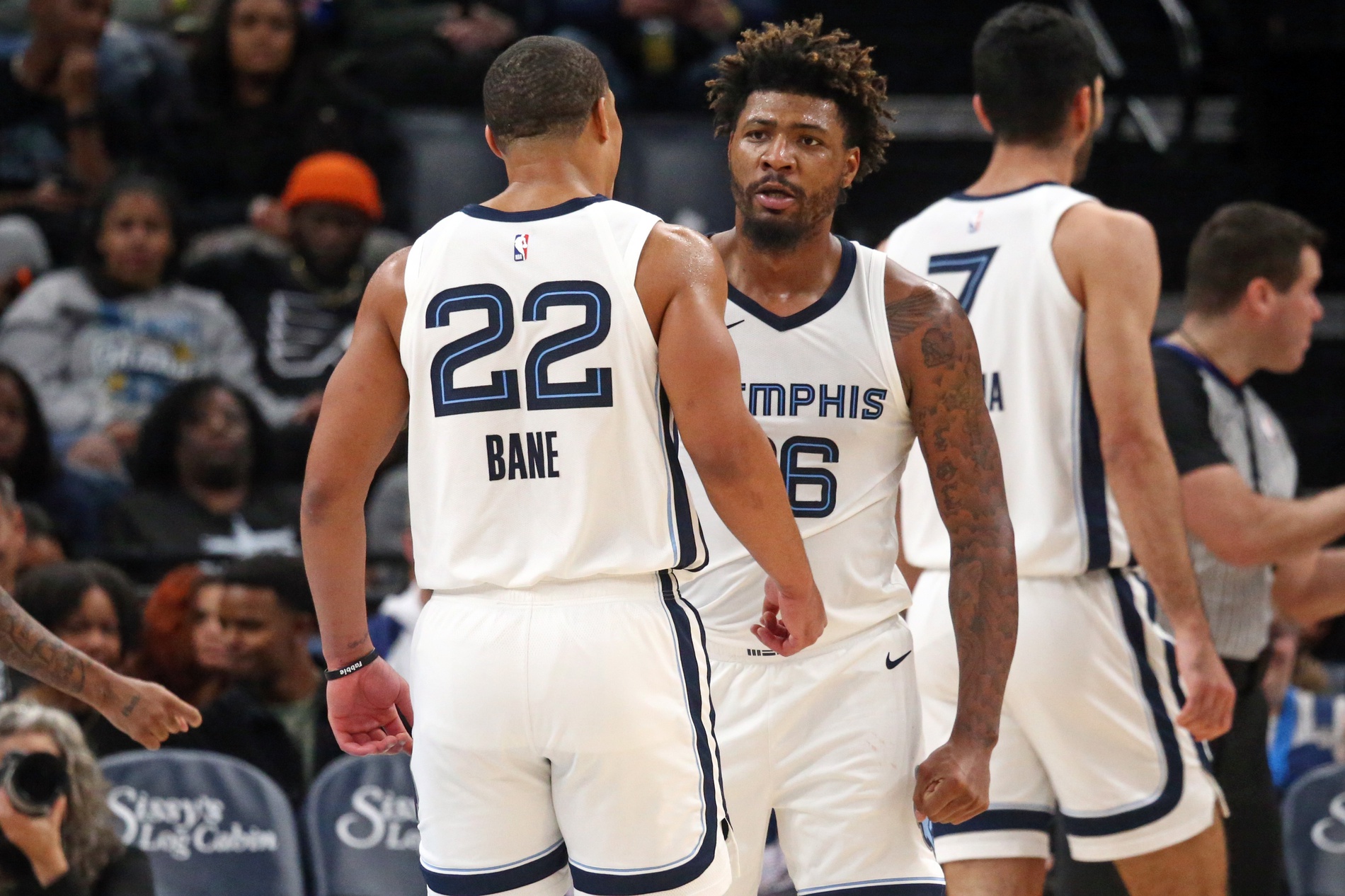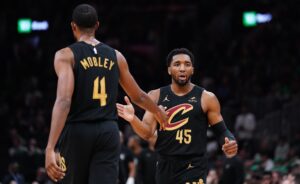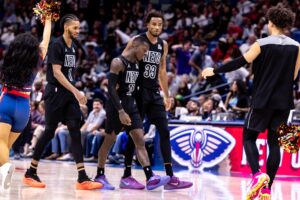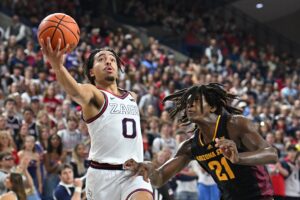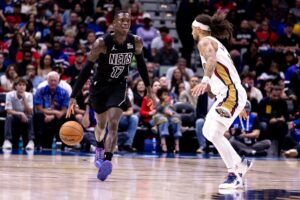As they endeavored to replace defensive stalwart Dillon Brooks,in the 2023 offseason, the Memphis Grizzlies traded for another premier defender in Marcus Smart. On the surface, the similarities in their skillsets made this a logical transaction. Yet, there are few problems with that argument.
Why The Grizzlies Would Be Wise To Trade Marcus Smart
The first issue is that Brooks’s antics weren’t the only reason that the Grizzlies refused to re-sign him. Like many elite defenders, Brooks is inconsistent offensively. His jump shot is unreliable and his ball-handling is uninspiring.
Those problems reared their ugly heads in the 2023 NBA Playoffs, as Brooks averaged 10.5 points per game on 31.2 percent shooting from the field and 23.8 percent shooting from 3. It was his second consecutive postseason shooting below 35 percent from the floor or long-range.
The second problem is that Brooks and Smart play different positions. Though they’re largely capable of guarding 1-4, their offensive skillsets fit different archetypes. Brooks, whose best attribute offensively is arguably his physical strength, is a forward. Meanwhile, Smart’s best attribute at the offensive end is his passing ability. Though he does take too many risks, he’s a highly adept and experienced facilitator.
If Smart continues to start, Ja Morant and Desmond Bane will join him on the perimeter. Yet, Morant’s a streaky jump shooter who’s at his best with the ball in his hands, like Smart. Bane, a career 41.5 percent 3-point shooter, is stellar off-ball. However, at 6-foot-5, he’s a bit undersized at small forward.
The best solution then would be to trade Smart for a marquee 3-and-D wing. Ideally, said player will shoot better than Smart and have more length than Bane. Unfortunately for the Grizzlies, that’s a short list.
Enter Cam Johnson
There’s one player who fits Memphis’ needs perfectly: Brooklyn Nets forward Cam Johnson. Not only is Johnson a 3-and-D forward with great positional length, he makes enough to match Smart’s salary in a trade. On top of that, the Nets are engaged in a rebuild, and he’s considered to be available for the right price.
The question then is whether Brooklyn would have interest in the 30-year-old Smart.
Smart would certainly raise the Nets’ defensive ceiling, as neither Dennis Schroder nor Cam Thomas put fear into their opponents hearts at that end. With Ben Simmons‘s back taking him in and out of the lineup, having someone else that they could rely on as a two-way playmaker isn’t a bad idea. In fact, Thomas might be able to pick up some defensive tricks from Smart, which would go a long way towards him becoming a more complete player. Lastly, because of the way he would stand out on their roster, Brooklyn could raise his trade value and move him for a younger player.
The Rui Hachimura Factor
Another option would be to re-route Smart to a contender in a subsequent or three-team trade.
Franchises like the Cleveland Cavaliers, Los Angeles Lakers, and Milwaukee Bucks not only could use a defensive upgrade in the backcourt, but could afford it. Among those teams, the Lakers are the only ones who wouldn’t have to move a center to match salaries though. This is important primarily because, with Nic Claxton manning the pivot, the Nets probably don’t have much interest in one.
However, L.A.’s Rui Hachimura may be of interest to Brooklyn. Not only is Hachimura younger than Johnson, he has similar defensive abilities but more scoring upside; he could be their second or third option behind Thomas and Schroder. Should the Nets land a lottery pick in the 2025 NBA Draft, he can fit beside any of the projected top-five prospects, from Duke forward Cooper Flagg to Baylor wing V.J. Edgecombe. In other words, Hachimura doesn’t hinder them from building a title-contender, he accelerates the process.
Going To The Trade Machine
Ultimately, the trade could look like this:
Nets receive — Rui Hachimura, Jalen Hood-Schifino
Lakers receive — Marcus Smart
Grizzlies receive — Cam Johnson
In this scenario, 2023 No. 17 pick Jalen Hood-Schifino is added to the transaction to prevent the Lakers from becoming a second apron team after the trade.
As Hood-Schifino underwhelmed in his injury-ravaged rookie season, he also doesn’t have the best trade value. This could help Brooklyn add a potential rotation player without giving up additional assets. If the Nets send one of their many draft picks to the Lakers, it might all but ensure the trade goes through. L.A.’s draft cupboard is so threadbare that they might raise a banner for acquiring a first-round pick.


